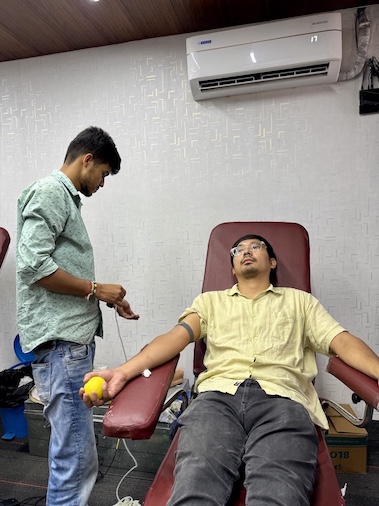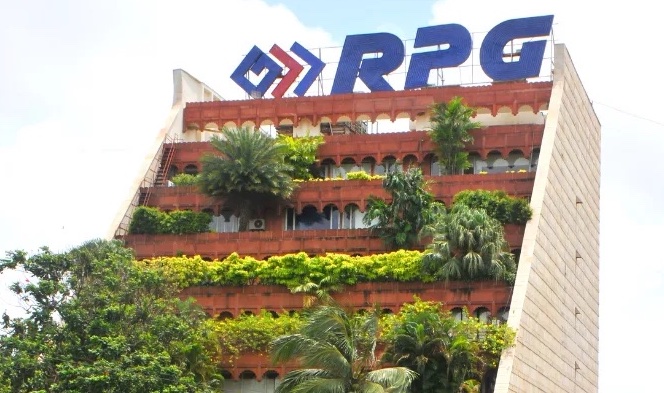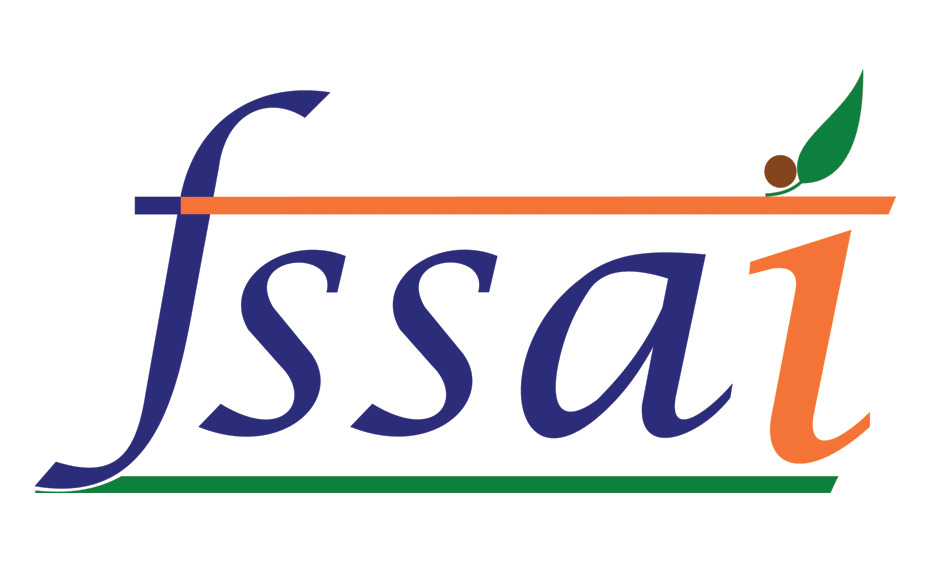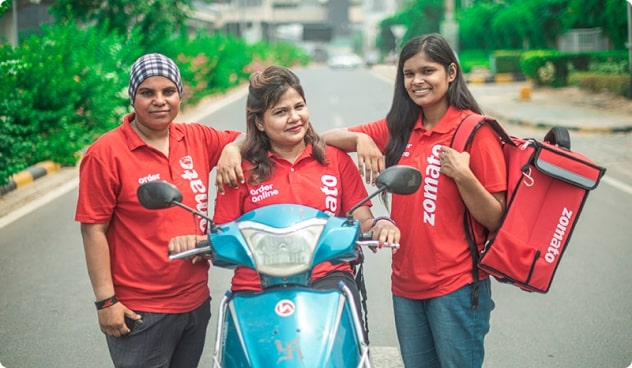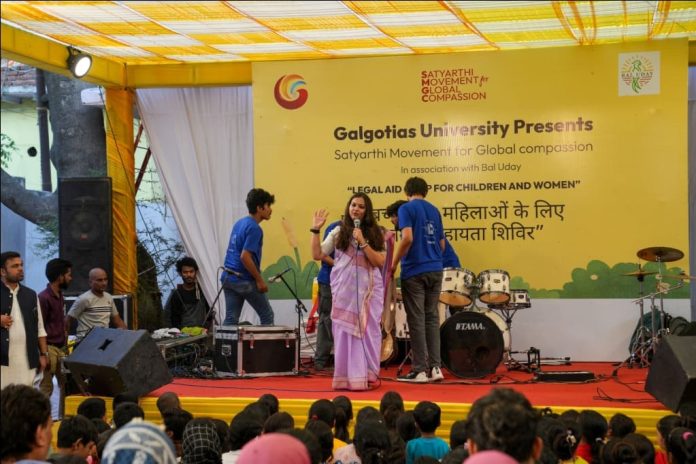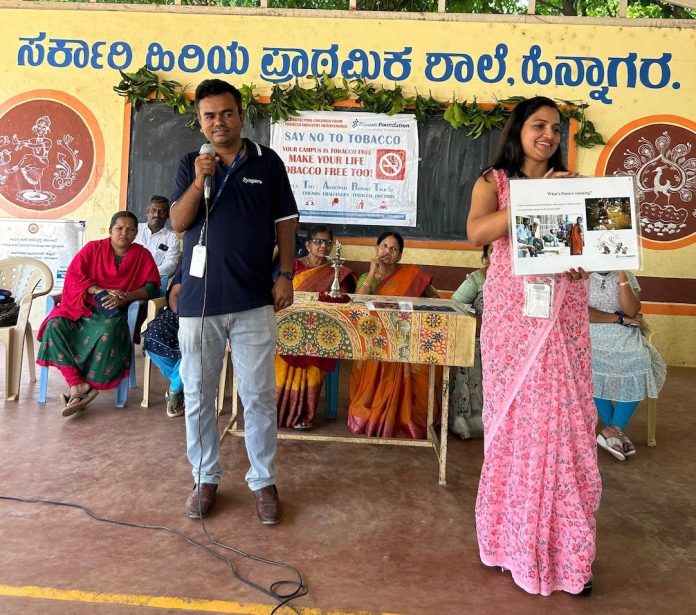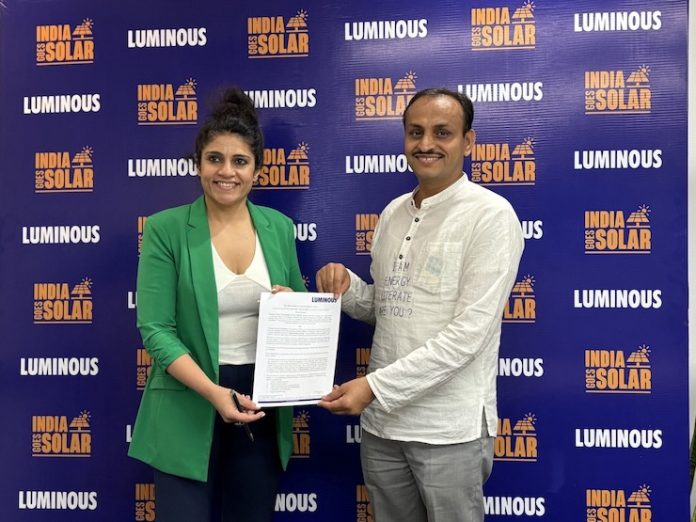CSR initiative redesigns city’s parks for increasing biodiversity
In the face of a rapidly warming planet, RPG Foundation’s biodiversity project nature:re is taking small steps to rebalance our planet. Under nature:recity, we are bringing in a game-changing approach of a Green Corridor to develop biodiversity in the urban landscapes of Mumbai.
Kickstarting this initiative, we are transforming the parks of Shantivan in Malabar Hills and Captain Namdev Lotankar Garden in Mahalaxmi.
The redesigned parks will function as ecologically-driven urban oasis, incorporating native plantations, soil and water-conserving landscaping principles. The strategic selection of Rora will enhance habitat connectivity and promote local pollinator population, building a more robust ecosystem.
By sequestering carbon-dioxide through photosynthesis, the redesigned parks will function as vital urban carbon sinks. Additionally, the native plants will contribute to urban heat island mitigation, lowering ambient temperatures through evapotranspiration, a natural cooling process. The enriched biodiversity will not only enhance the ecological balance but also serve as a valuable resource for environmental education and scientific research in the city.
Before:

After:

60% of the world’s population will live in cities by 2030, causing intense pressure on urban green spaces. Green cover across cities is rapidly decreasing. India recorded thehighest temperature th is year – 52.3 degrees celsius in 2024, surpassing the previous record of 49.2 degrees celsius set in 2002.
These redesigned parks offer a much-needed respite for Mumbaikars. Educational trails, informative signage, and designated seating areas will allow visitors to connect withnature in a meaningful way, fostering a deeper appreciation for the environment.
Captain Namdev Lotankar Garden
– Botanical Treasure Trove: It boasts 49 recorded tree species, with 24 native varieties.
– Heritage Trees: It houses 11 grand old trees, including 10 Raintrees and a Banyan, all classi1ed as heritage trees.
– Diverse Flora: The park showcases a variety of native and non-native trees like Kuchala, Java Olive, Mahogany, Rose Apple, and Ankol.
– Rich Fauna: A survey identi1ed 40 fauna species, including 14 butterRy species, birds like the Alexandrine Parakeet, and mammals like the Five-striped PalmSquirrel.
Shantivan Park
– Hidden Oasis: Features enchanting moss-covered paths and repurposed steps transformed into arti1cial streams and mini waterfalls, creating a charming escape.
– Biodiversity Hotspot: Boasts over 8G plant species and 50+ fauna species, showcasing a vibrant ecosystem within the city.
Reimagined Parks for a Sustainable Future
Starting with Mumbai, the project establishes a network of interconnected public parks and open spaces, stretching from the city’s northern tip to its southern end. Thisnetwork will provide suitable habitats, ensuring the seamless movement of Rora and fauna, ultimately promoting a resilient ecosystem with the long-term survival of diversenative species.
2021-2030 is the UN decade for preventing, halting, and reversing the loss of nature.
RPG Foundation’s nature:re is at the forefront of creating a more sustainable future. By harnessing the power of nature, we can combat rising temperatures, protectbiodiversity, and create vibrant public spaces for all to enjoy.
Disclaimer: This media release is auto-generated. The CSR Journal is not responsible for the content.
Corporate Donations for CSR Activities Can Be Tax-Deductible, Says ITAT
According a recent ruling of the Income Tax Appellate Tribunal (ITAT) in Mumbai, the companies are entitled to claim tax deductions for expenses incurred related to Corporate Social Responsibility (CSR) initiatives, under Section 80G of the Income Tax Act. This reverses the earlier claims of the tax authorities that did not accept tax deductions for CSR spending.
Background and Ruling
The case that triggered the ruling by ITAT involved a company in the aluminum composite panel sheet industry, that had included CSR-related donations in its tax return, seeking deductions under Section 80G. However, the tax authorities declined half of these claims presenting an argument that CSR expenditure is mandated by law, and since it is not voluntary, it does not qualify as donations for tax deductions. In order to challenge this claim, the company appealed to the first appellate authority who stood with the tax authorities on the matter. The company then appealed further which brought the case to the ITAT.
The ITAT with Judicial Member Kavitha Rajagopal and Accountant Member Om Prakash Kant on the bench, reversed the previous order of the appellate authority, ruling in favour of the company. The order issued by the bench has noted that an amendment in 2015 to Section 80G, which added specific exclusions for certain CSR donations (such as those to the Swachh Bharat Kosh and Clean Ganga Fund), indicates that other CSR-related expenses can still qualify for deductions under Section 80G. This interpretation comes as a relief to companies as it allows them to claim deductions for a broader range of CSR activities.
Implications
The ruling has broader implications, when it comes to undertaking CSR beyond law. The aim of mandating CSR was not to stronghold companies into handing out more money to the government who is originally in charge of the social development. It is to encourage participation of the corporates in the development, while reminding them of their responsibility towards the society. The underlining aim is to get corporates to view CSR as opportunity to collaborate with various entities for development of the society at large, rather than focusing solely on profits while paying away an amount as tax for operating within a community and utilising its resources.
To get corporates to develop this attitude is challenging if they are taxed for the CSR expenditures they make. This ruling helps address this road-block, and it further incentivises companies to conduct more CSR initiatives rather than making donations without further monitoring. Additionally, by allowing deductions for CSR related donations or expenses, the ruling reinforces the purpose of Section 80G, which aims to encourage philanthropy and support charitable organisations. This can lead to increase in funding for social, cultural, economic development and environment conservation initiatives.
The ITAT’s decision has confirmed that expenses made under CSR of a company, can still be considered donations for tax purposes, even if they are legally required, provided they meet specific criteria. By allowing deductions for CSR-related donations under Section 80G, the ruling not only supports and encourages corporate philanthropy but also provides much-needed clarity for businesses to continue investing in social and environmental initiatives beyond what is required by the law.
India’s Top 3 Most Notorious Street Foods: A Grave Concern for Public Health
Indian street food, irrespective of its cross over with other cuisines is a cuisine in itself. Tourists travel miles for the taste a particular stall offers in the nook of a remote lane in India. But most recently, these very delicacies of India have scared not just Indians but the whole world. Too many shocking reports of contamination in street foods have occurred, with some even leading to deaths.
Here, we explore the top three most notorious street foods in India, notorious for their shocking health hazards and life taking capabilities.
3. Pani Puri: Unimaginable Contamination
Pani puri, a staple of Indian street food, has faced multiple scandals involving extreme unhygienic practices. During the COVID-19 lockdown, a vendor named Rajdev Chauhan in Mumbai was caught urinating in the vessel used to prepare pani puri. Another incident in Guwahati saw a vendor mixing urine into the pani puri water. A similar case in Kolhapur involved a vendor using toilet water in the preparation. These incidents not only highlight gross violations of basic hygiene but also pose serious health risks to consumers.
2. Momos: Hidden Hazards
Momos, a beloved street food, has also come under scrutiny. A study by the Institute of Hotel Management, Catering & Nutrition revealed alarming levels of faecal matter in Delhi’s street foods, including momos, samosas, golgappas, and burgers. This revelation has deeply shaken public trust. Moreover, a viral video of a Delhi street vendor candidly admitting that momo chutney is often made from rotten tomatoes has further amplified concerns. The vendor claimed that this is done to enhance the taste, exposing consumers to severe health risks.
1. Shawarma: A Deadly Delicacy
Shawarma has recently made headlines for tragic reasons. In a horrifying incident in Mumbai, a 19-year-old boy died after consuming shawarma from a street vendor. This is not an isolated case; similar fatalities have been reported in Tamil Nadu, where a 14-year-old girl died, and in Kerala, where a 16-year-old girl and a 22-year-old man lost their lives. Medical professionals have highlighted that consuming shawarma long after it has been prepared can lead to severe food poisoning, which in extreme cases can be fatal. Following the Mumbai incident, two vendors were arrested, and a statutory warning was issued against consuming street food without ensuring its freshness and hygiene.
Public Health Implications and Response
The aforementioned incidents underscore a significant public health crisis linked to street food in India. Food-borne illnesses can lead to severe gastrointestinal issues, long-term health complications, and even death. Authorities have begun to take stringent measures, including arrests and the issuance of warnings, to curb such malpractices. However, ensuring the safety of street food requires a multi-faceted approach, involving stricter regulations, regular inspections, and heightened consumer awareness.
Consumers are advised to be vigilant about the hygiene practices of street food vendors and opt for food from sources that maintain cleanliness and proper food handling procedures. Public health campaigns and educational programs are essential to inform both vendors and consumers about the risks of poor food hygiene and the importance of safe food practices.
These incidents only highlight how fickle life in India has become and makes you wonder, where it is that the Indian government really places, the protection of civilian lives that are lost to such avoidable circumstances. We often hear that the nation is growing and indeed taxes and everyday commodity costs are increasing, but it seems that the only thing decreasing is the value of a regular person’s life in India.
Zomato pledges 100% EV-based deliveries by 2030
New Delhi, India: In an effort to commemorate World Environment Day 2024, Zomato, India’s food ordering and delivery platform, today, launched a unique ad film reinforcing its commitment to facilitate 100% EV-based deliveries by 2030. The film playfully highlights Zomato’s delivery partner’s transition to electric vehicles (EVs) by showcasing a series of comedic trials with unconventional transport methods, in ensuring timely deliveries.
Commenting on the campaign, Anjalli Ravi Kumar, Zomato’s Chief Sustainability Officer, Zomato stated, “Sustainability is at the core of Zomato’s business, underscored by its commitment to achieve 100% EV-based deliveries by 2030. Given that over 90% of our emissions arise from last-mile deliveries (within Scope 3 value-chain emissions), the transition to EV-based deliveries is critical, making it one of our most significant steps toward achieving our Net Zero target by 2033. In line with our commitment towards environmental responsibility, Zomato became the first and sole food ordering and delivery platform globally to join the Climate Group’s EV100 initiative in 2021, a strategic move that reflects our steadfast confidence in the advantages of transitioning to EVs, amidst the early stages of India’s 2W EV ecosystem.”
She added, “Our World Environment Day campaign cleverly blends our bold 2030 vision for a greener, more inclusive future with a touch of humor. It creatively showcases our commitment to achieve this future through EV-based deliveries without compromising on the delivery time.”
Zomato’s EV program uses four levers to facilitate this transition to EV-based deliveries – improving access to EVs on rent for delivery partners through tie-ups with over 70+EV rental companies and OEMs and a digital referral tool, onboarding EV-based logistics service providers, supporting ownership of EV bikes through collaboration with financial service providers and lastly, enhancing delivery partner awareness of different models and benefits of using EVs for delivery through online and offline activations.
Disclaimer: This media release is auto-generated. The CSR Journal is not responsible for the content.
CSR: Legal Aid Camp for Children and Women Hosted in collaboration with Satyarthi Movement for Global Compassion
Galgotias University, in collaboration with the Satyarthi Movement for Global Compassion, successfully hosted the “Legal Aid Camp for Children and Women” at Okhla Phase-1, New Delhi. The event, titled “Galgotias University presents Bal Uday in collaboration with the Satyarthi Movement for Global Compassion – Legal Aid Camp for Children and Women,” aimed to educate children about their legal rights and obligations, fostering a safer future for them. The camp also addressed the vital role of maternal figures in children’s lives and the importance of using law as a tool to ensure a bright future. Legal queries from the attendees were addressed throughout the event.
The camp featured prominent guests and organisers, including Shri Ajay Tirkey, Hon’ble Member of Lokpal, who graced the event as the chief guest. Dr. Dhruv Galgotia, CEO of Galgotias University, represented the university along with its students, who actively participated by conducting interactive sessions and cultural performances. Representing the Satyarthi Movement for Global Compassion were Mr. Rakesh Senger, Executive Director of Kailash Satyarthi Children’s Foundation, and Ms. Sahana Priyadharshini, Associate Manager of the Satyarthi Movement for Global Compassion. Additionally, Mrs. Gayatri Misra, Advocate, Mr. Kunal Awana, Advocate, Ms. Shubhi Mishra, Advocate, and Mr. Advitiya Awasthi represented Bal Uday.
The event emphasised the collaborative efforts of Galgotias University, Bal Uday, and the Satyarthi Movement for Global Compassion. Galgotias University, emerging as a centre for excellence in knowledge generation and dissemination, actively supports Bal Uday’s mission to create a safer and informed future for children. Bal Uday, a trust dedicated to imparting basic legal awareness amongst children and their parents at the grassroots level, plays a key role in providing holistic legal aid. The Satyarthi Movement for Global Compassion is a global initiative born from Nobel Peace Laureate Kailash Satyarthi’s four decades of revolutionary efforts as a social reformer, aiming to ignite ‘Compassion in Action’ worldwide.
Dr. Dhruv Galgotia, CEO, Galgotias University expressed his commitment to the initiative, stating, “At Galgotias University, we believe in the power of education to transform lives. Through initiatives like Bal Uday and our collaboration with the Satyarthi Movement for Global Compassion, we aim to empower children and women with the knowledge of their legal rights, fostering a safer and more informed community. This camp is a testament to our commitment to creating a brighter future for the next generation.”
The legal aid camp culminated the periodic awareness workshops conducted in the area, focusing on issues such as physical assault, theft, misuse of social media, and the need for a strong value system. Help desks manned by law students of Galgotias University addressed legal queries of attendees. Key topics included understanding actions and consequences, crime and its implications, protection and conflict with law, sexual offences, the Juvenile Justice Act, and the importance of strong maternal figures and positive role models in a child’s development.
Advocate Gayatri Misra, founder trustee of Bal Uday, emphasised the importance of such initiatives, stating, “Educating children and women about their legal rights is crucial for building a just and equitable society. Our collaboration with Galgotias University and the Satyarthi Movement for Global Compassion has allowed us to reach more individuals and provide the necessary legal aid and awareness to empower them. We are committed to continuing this mission and creating a safer environment for all.”
Galgotias University is a leading private institution dedicated to providing quality education and emerging as a Centre for Excellence in knowledge generation and dissemination.
Disclaimer: This media release is auto-generated. The CSR Journal is not responsible for the content.
CSR campaign #DontSkipTheFirstPage launched for Eco-Consciousness
Bengaluru, India: On the occasion of World Environment Day, Lighthouse Learning, India’s leading Early Childhood and K-12 Education Group, launched its new campaign as a part of their corporate social Responsibility (CSR) initiative dedicated to environmental sustainability. In its new campaign titled ‘#DontSkipTheFirstPage’, Lighthouse Learning aims to challenge the age-old tradition of leaving the first page of notebooks blank, advocating for a small change that can yield significant positive impacts on our planet.
The tradition of skipping the first page of notebooks has persisted for generations, rooted in beliefs ranging from superstition to aesthetics. However, what has been overlooked is the significant environmental cost associated with this seemingly harmless tradition. Research indicates that more than 312 crore first pages are skipped annually, impacting approximately 3.12 lakh trees and resulting in 1600 tonnes of carbon emissions. The production of a single page of paper generates about 5 grams of carbon emissions, contributing to the pressing environmental issues we face today.
Driven by an unwavering commitment for environmental stewardship, Lighthouse Learning is urging students, educators, and employees across their network of schools nationwide to utilize the first page of their notebooks to catalyse a shift towards sustainability. Through this campaign, Lighthouse Learning aims to ignite a ripple effect, inspiring individuals and institutions nationwide to reassess their consumption patterns and adopt more eco conscious behaviors.
On the launch of the campaign, Prajodh Rajan, Co-Founder and Group CEO, Lighthouse Learning, said, “The launch of the #DontSkipTheFirstPage campaign this World Environment Day is a call to recognize the profound impact that small, collective actions can have on our planet. It transcends the act of using that first page; it is an invitation to evaluate our habits and adopt a more mindful approach to consumption. We urge everyone to join us in this movement by using all the pages in their notebooks, thereby contributing to the reduction of paper wastage. By collectively embracing this simple change, we can significantly cut carbon emissions and ensure the preservation of our environment for future generations. Let’s together, lead the way to create a more sustainable world.”
Lighthouse Learning remains committed to empowering students not just academically, but also as environmentally conscious citizens through initiative like #DontSkipTheFirstPage. By promoting sustainable practices like, Lighthouse Learning aims to inspire a generation of change makers who prioritise the health of the planet.
Disclaimer: This media release is auto-generated. The CSR Journal is not responsible for the content.

